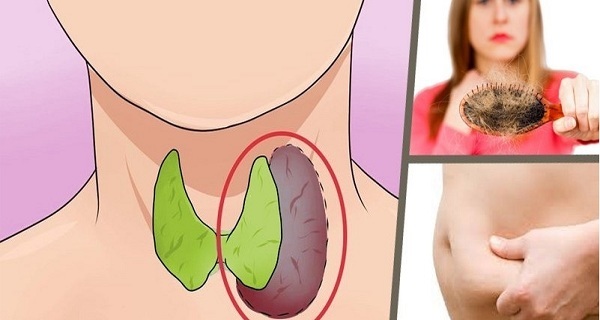Hypothyroidism usually affects women, but the risk is increased during pregnancy and with age. This problem is often neglects or underestimates, as a result of which the disease is diagnosed too late.
Thyroxine which is produced by the thyroid gland occurs in two forms, as T3 and T4. These hormones circulate in the blood linked to plasma proteins and some are in free fractions and are known as FT3 and FT4 and represent the active form of the hormone. The creation of thyroid hormones depends on the good functioning of the hypothalamus and pituitary and of sufficient iodine intake, necessary for the creation of T3 and T4.
Take the selenium
The lack of this mineral can contribute to hypothyroidism. It has antioxidant properties since it is an integral part of the enzyme glutathione- peroxidase, involved in the inactivation of free radicals, dangerous for the proper functioning of our cells. However, selenium activates an enzyme that promotes the conversion of thyroid hormone T4 to T3. Numerous clinical studies have shown that taking selenium reduces inflammation in patients with autoimmune disease of the thyroid gland.
The recommended amount of selenium for adults is 55 micrograms per day (400 micrograms is the recommended upper limit). Selenium can be found in Brazil nuts, seafood, oysters, cereals, eggs, cucumber, radishes, white and black bow.
Take the zinc
This plays an important role in many biological processes since it is required for activity on at least 200 enzymes. It has antioxidant activity and is important for the conversion of T4 to T3.
The recommended daily dose is 10-30 mg. To increase its absorption, it should be taken one hour before or two hours after meals, not with coffee. You can find it in oysters, dried fruit, liver, milk, meat, legumes.
Beware of Brassicaceae
If you suffer from hypothyroidism, you need to keep in mind that soy foods that belong to the Brassicaceae family (such as turnips, cabbage, cauliflower, and spinach) reduce the functionality of the thyroid gland, as they contain molecules that inhibit the absorption of iodine and formation of thyroxine. However, should not forget that these foods are antioxidants that work against tumors, so their moderate use is still recommended.
The negative effect on the thyroid gland can be balanced by increased iodine intake.
Three useful habits for a healthy thyroid gland
Diet and lifestyle both affect the functionality of the thyroid gland, as well as to hormone therapy. Note the following:
1. Limit salt intake, the daily dose should not be over 3 g.
2. Include coconut oil in supplemental feeding, because it has a very beneficial effect on the thyroid gland.
3. If you take levothyroxine, you should know that coffee reduces its absorption so it is best to wait at least half an hour before a cup of coffee.




